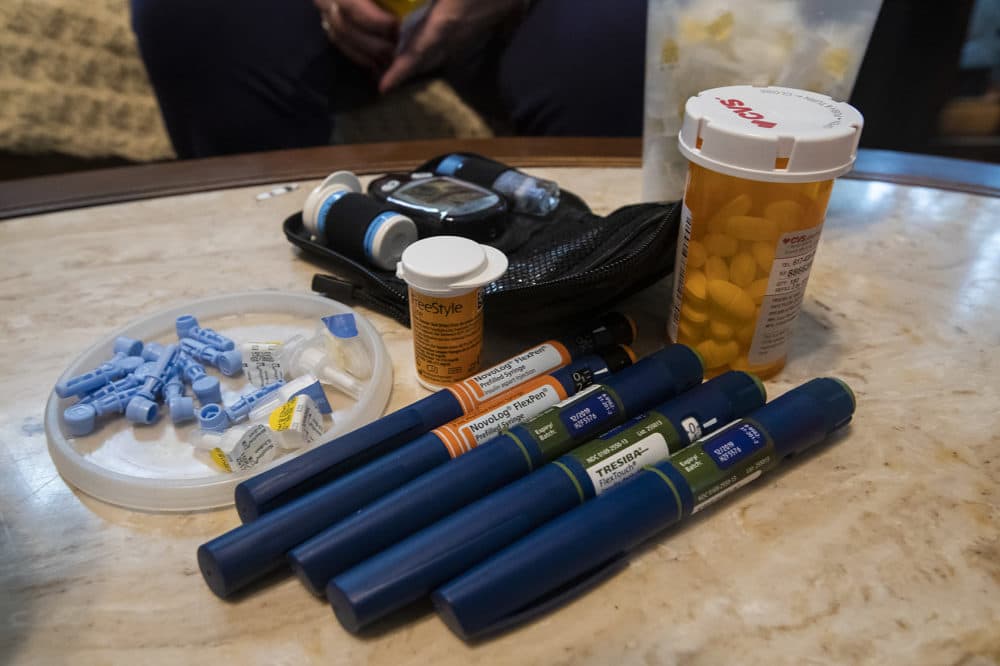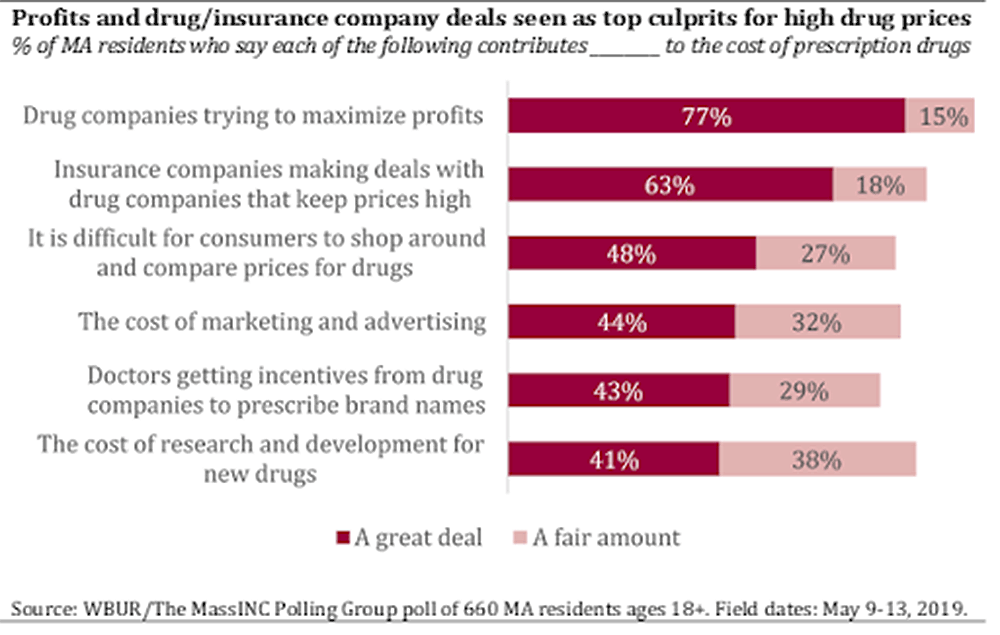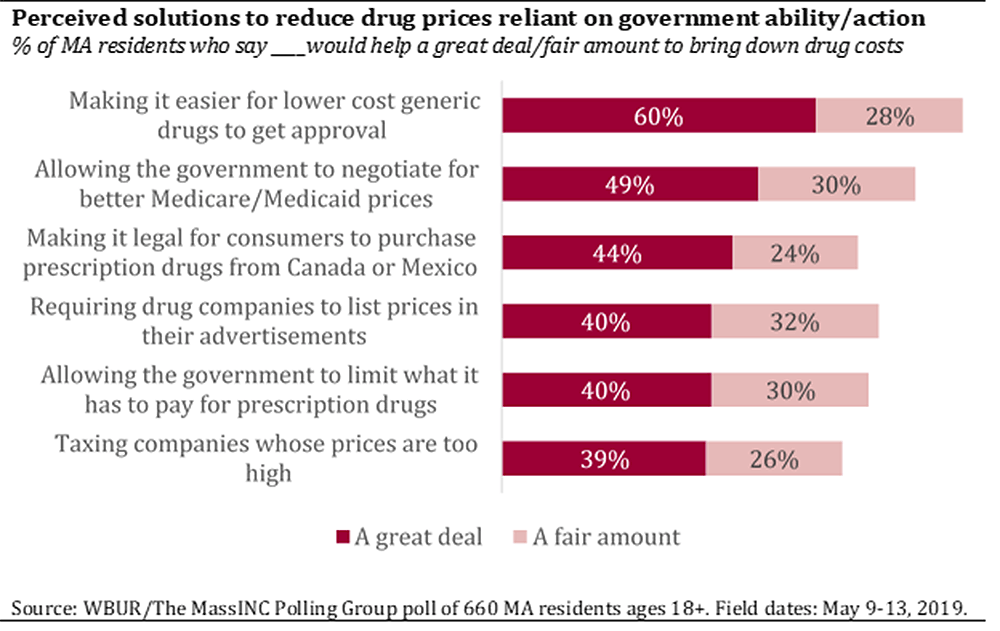Advertisement
The Price Of Health
WBUR Poll: 76% Of Mass. Residents Think Drug Prices Are Unreasonable

The vast majority of Massachusetts residents view the cost of prescription drugs as unreasonable, and two out of three say it's a major problem, according to a new WBUR poll (topline results, crosstabs).
Among people who've recently taken a medication, more than a third said they've been told their insurance plan would not cover a drug prescribed by their doctor.
"We in Massachusetts are a state with almost universal health insurance coverage, but when you start to ask about problems people are encountering, then you start to get a bit of a different picture," said Steve Koczela, president of the MassINC Polling Group, which conducted the survey. "You start to understand the personal challenges people and families are facing as they're trying to navigate a system they say is expensive and confusing."
The poll comes as Massachusetts lawmakers consider measures aimed at curbing drug prices, and as WBUR begins a week-long series exploring why drug prices are so high, and what might be done about it.
Conducted last month, the live telephone survey of 660 residents, which has a margin of error of 3.8 percentage points, finds that a significant share of people who have recently taken a medication struggle with drug prices.

Nearly one in three reported that it is somewhat or very difficult to afford their prescription drugs, and almost one in four said that in the last year they had opted not to fill a prescription on schedule because of the cost.
More than one in four people reported that because of costs, they had cut pills in half or skipped doses to make a prescription last longer.
Among residents who said they had delayed filling a prescription, taken a cheaper over-the-counter alternative or rationed medication, 43% believe their medical condition worsened as a result.
"The outcome there is that a good number of those people — people taking those steps — say it's made their condition worse," Koczela said. "So even after they've found a way to pay and navigated the insurance maze, if they have to cut corners, then the health outcome they're going for by taking these drugs in the first place is not something they're necessarily gaining."
One sentiment that emerges clearly from the survey is that Massachusetts residents blame pharmaceutical companies and the insurance industry for driving up the cost of prescription drugs. Seventy-seven percent of respondents said drug companies trying to maximize profits contributes a "great deal" to the cost of medications, and 63% cited insurance companies making deals with drug companies that keep prices high.
Advertisement

When it comes to reducing drug prices, most residents in the survey thought making it easier for lower-cost generic drugs to get approval would help a great deal. And nearly half — 49% — said the same about allowing the government to negotiate prices for Medicaid and Medicare. Forty-four percent said making it legal to purchase prescription drugs from abroad would make a big difference.
While most poll respondents who currently take a medication reported spending less than $100 a month on prescription drugs, a significant majority — 76% — think the cost of drugs is unreasonable. Roughly 19% said they have had to cut back in other areas, such as food and utility bills, to afford medications.
"There are a couple things going on," said Koczela. "One is news awareness, so people know the full range of cost of prescription goes pretty high. Even though they may not be paying the worst numbers, they are aware that the cost of prescription drugs has become burdensome."
For many people, even $50 or $100 a month represents a lot of money, Kozcela notes. And for people paying $100 a month or more, the tab adds up to more than $1,000 a year.
"That's 22% of people," he said. "That's something to prompt you to say these costs are unreasonable, especially when you add that to the [other] costs you're already paying."
